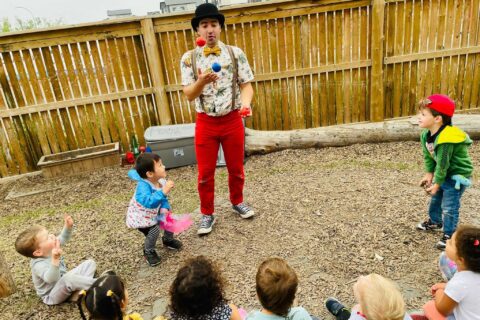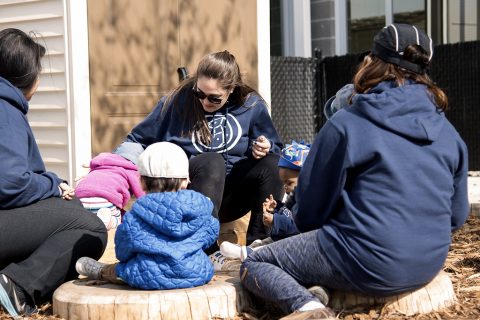Early Childhood Education, the Sooner the Better

You’d be hard-pressed to find a parent on this earth who wouldn’t go out of their way to provide their children with the tools necessary to set them up for success. If you’re a parent reading this, you know the feeling all too well. You want to give the world to your child, and you want them to achieve beyond their wildest dreams.
So how does a well-meaning parent or guardian secure their child the best head start towards a lifetime of success?
Well, top research has shown that enrolling your child in an early childhood education program is one of the most powerful moves that you can make to help promote long-lasting success for him or her, both socially and professionally.
Here’s all the information you need to know about the world of early childhood education, and why people often claim that enrolling your child in it sooner is better than later:
What Exactly Is Early Childhood Education?
While the term possesses a broad scope, early childhood education defines educational programs that cater to the needs of preschool-aged children as young as 16 weeks old. Curriculums vary immensely from program to program, but all early childhood education programs are geared towards encouraging the cognitive and social development of the youngest members of society – preschoolers.
The High Scope Perry Preschool Experiment
One of the most prolific studies surrounding early childhood development was the HighScope Perry Preschool Experiment conducted from 1962–1967. The experiment took 123 low-income black students who were categorized as “at-risk”, and placed them into one of two situations:
- A control group, or
- A top of the line two-year preschool program
After following the students from the ages of 3 to 50 years old, researchers were able to prove the seemingly innumerable benefits of early childhood education programs. Allow us to break down the results for you:
- 65% of participants who entered the preschool program graduated from high school.
- 45% of participants who entered the control group graduated from high school.
- By the age of 40, participants who entered the preschool program were making an annual income of $20,800 a year, (remember this was in the 1960s).
- By the age of 40, participants who entered the control group were making an annual income of $15,300 a year
As you can gather from the data, the HighScope Perry Preschool Experiment participants who had received early childhood education were better off. These participants were more likely to be employed, raise their children, own a house or car, and were also less likely to get arrested or use illicit drugs.
At the end of the day, however, this is what it comes down to:
Teaching Now > Rectifying Later
You’ve surely heard people discussing the effects of childhood emotional experiences on the adult psyche- but what people often don’t discuss is the effect that delayed development in childhood can have on an adults intelligence.
In fact, when children receive poor guidance towards their developmental milestones, it’s not so simple for them to get to the same level as their peers as they enter the schooling system. If a student who didn’t receive adequate assistance in his or her early years requires extra help to keep up from trained professionals when elementary school comes along, his or her parents will incur that cost without the guarantee that their efforts will be able to rectify the situation.
Fortunately, early childhood education that focuses on learning through discovery and play is shown to set tykes up for long-term success.
Why Kepler Academy?
If you’re convinced that you want your child to reap the lifelong benefits that come along with early childhood education, it’s important that you choose the right program.
At Kepler Academy Early Learning & Child Care, our exploratory education approach focuses on a seamless blend of learning-through-play and an educational curriculum that promotes exploration and discovery.
From our Stargazer infant group starting at 16 weeks of age, all the way to our Stellar program for young adolescents 12 years of age, our unique child care programs in Edmonton foster immense intellectual growth through each stage of development.
Our unique curriculum focuses on five core components of intelligence, including:
- Social and Emotional
- Physical and Fine Motor
- Language and Communication
- Cognitive
- Discovery Skills
We hone in on each key area to ensure that your child stays on track meeting his or her developmental milestones, and additionally becomes a well-rounded adult in the long run.
Our passionate early childhood educators are more than excited to meet your little bundle of joy! If you’re ready to register your child at Kepler Academy, contact us today!


